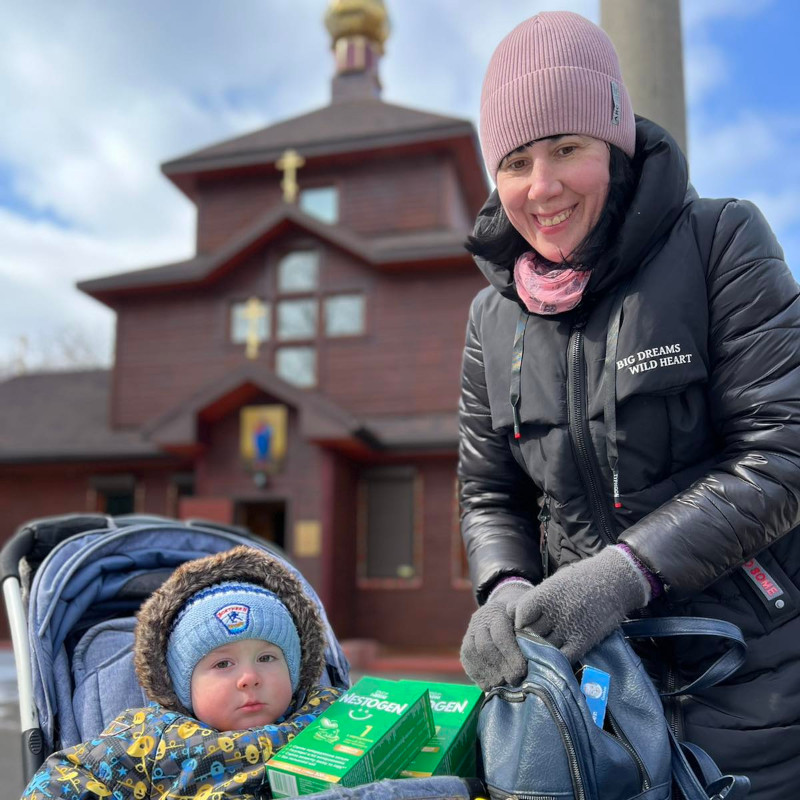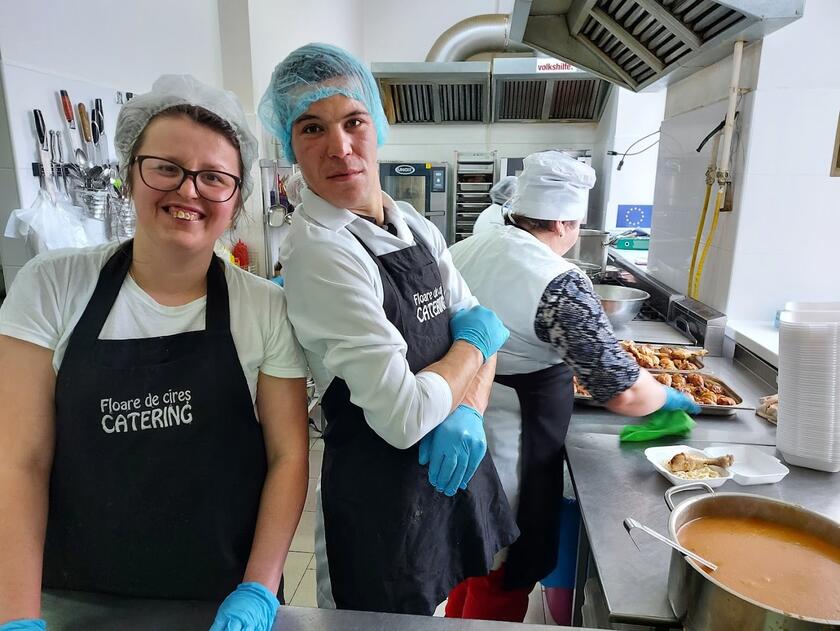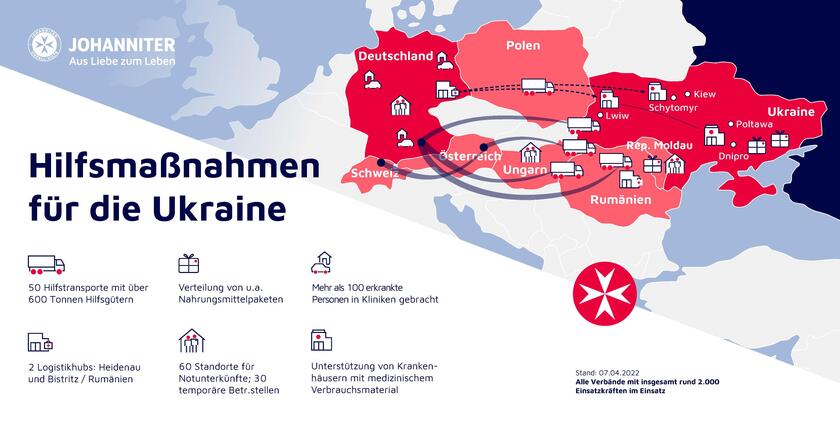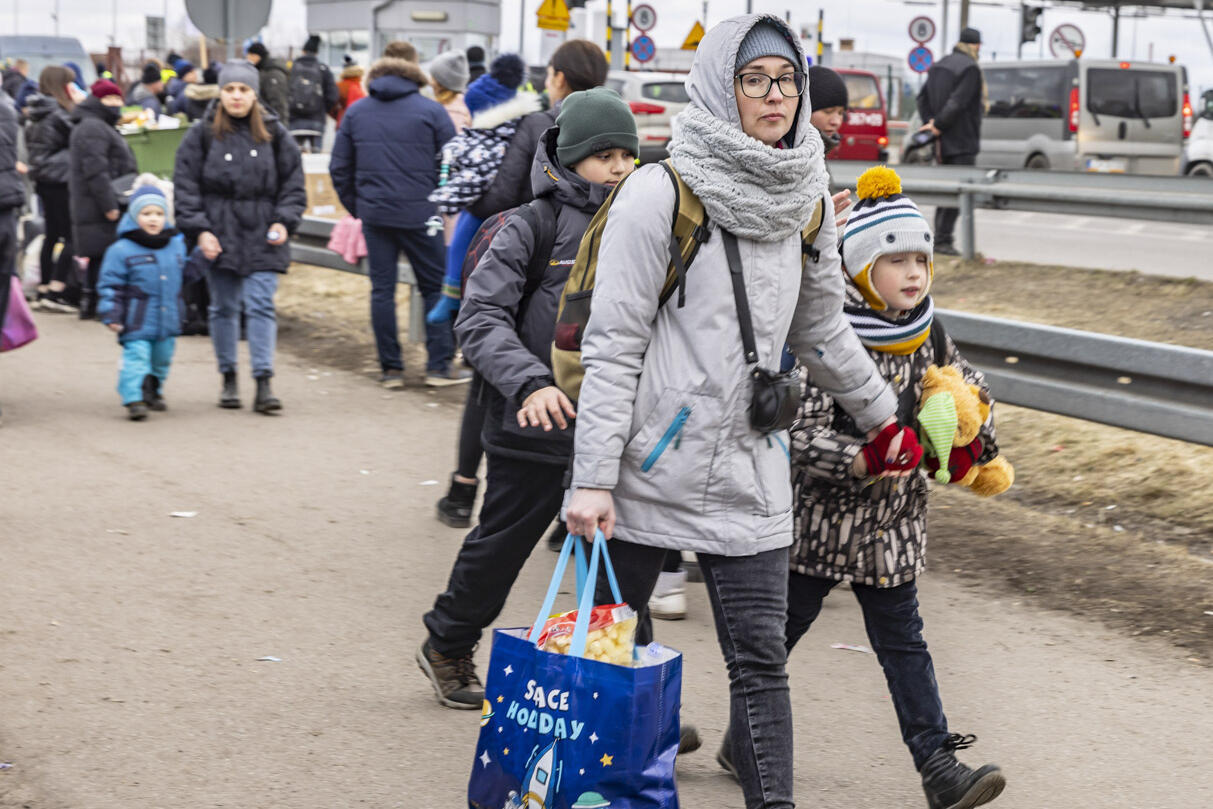Emergency Relief for the Ukrainian population expanded
With 50 transports, Johanniter has brought more than 600 tons of medicine, medical material, hygiene articles, and food to Ukraine, Romania, and the Republic of Moldova since 24 February. These relief goods were largely donations in kind from large German companies such as BayWa, A.T.U., TEVA/Ratiopharm or MAN. In order to be able to process the enormous quantities, supply depots were set up in Heidenau in Saxony and Bristita in Romania. Here, the donations are temporarily stored and then distributed via our partners in Ukraine.
Focus on medical care
Due to the enormous medical needs in Ukraine, Johanniter's relief efforts in the coming weeks will focus on the delivery of medicines and medical supplies to hospitals in Lviv, Luzk, Rivne, Dnipro, Poltava, Shitomyr, Wassylkiw, Kiev/Obuhiv, Czernowitz and Chust.
Some of the relief supplies are distributed through our partners, the "German-Ukrainian Forum" and "Eleos-Ukraine". This gives us the certainty that the relief supplies actually arrive and are used where they are needed. For example, local staff tell us that thousands of refugees from areas further east, including Mariupol, are currently arriving in Dnipro. Johanniter has already delivered three trucks with baby food, nappies and hygiene products, but above all medicines and medical supplies. A truck with urgently needed hospital beds was also sent to accommodate more patients.
From Poltava in central Ukraine, medicines and medical supplies were also taken to the hard-fought cities of Kharkiv and Sumy. Recipients were mainly children's hospitals and maternity clinics, but also general hospitals.
Relief projects launched in the Republic of Moldova
Together with the local relief organisation Eco-Razeni, refugees from Ukraine have been regularly provided with meals since 1 April. "Through our social catering company Floare de Cires, we can now prepare hot meals for 250 refugees every day," explains Sergiu Gurau, head of the organisation. The daily food rations usually consist of potatoes or porridge with meat and fish, as well as salad.
The special thing: The meals are prepared mainly by young people with disabilities. "Our approach for many years has been to support these young people in their integration and vocational training. Catering is an option in this," says Gurau. Since the outbreak of war, the young people are now hanging up their aprons to cook for refugees alongside the elderly and disadvantaged. The project will be implemented over the next three months for up to 2,000 refugees in the capital Chişinău and the rural district of Ialoveni.
Psychosocial support
Many people from Ukraine arrive in Moldova with traumatic memories of war. The organisation CASMED supports them in coming to terms with their feelings and experiences. A four-member mobile team from CASMED is developing a tailored psychosocial education programme for this purpose, which reaches around 360 refugees in various localities in the north of the Republic of Moldova. They organise themselves into small groups and receive professional support and counselling in four thematic sessions. In addition, the team also offers individual psychological counselling. CASMED passes on its experience to educators and social workers who deal with refugees and provide psychosocial support.
Expansion of shelters
For years, Moldovan villages in particular have experienced a continuing population decline, as young people in particular leave the poor country in search of work. The organisation EcoVisio promotes sustainable economic and social development in structurally weak regions in order to create better prospects. In the context of the war, Ukrainian families in particular are to receive these: In six communities around the capital Chişinău, EcoVisio supports host families in taking in refugees. A school and a training centre are also being prepared so that they can serve as community shelters. Johanniter is subsidising the necessary repairs, energy costs and meals for an initial 200 refugees.



